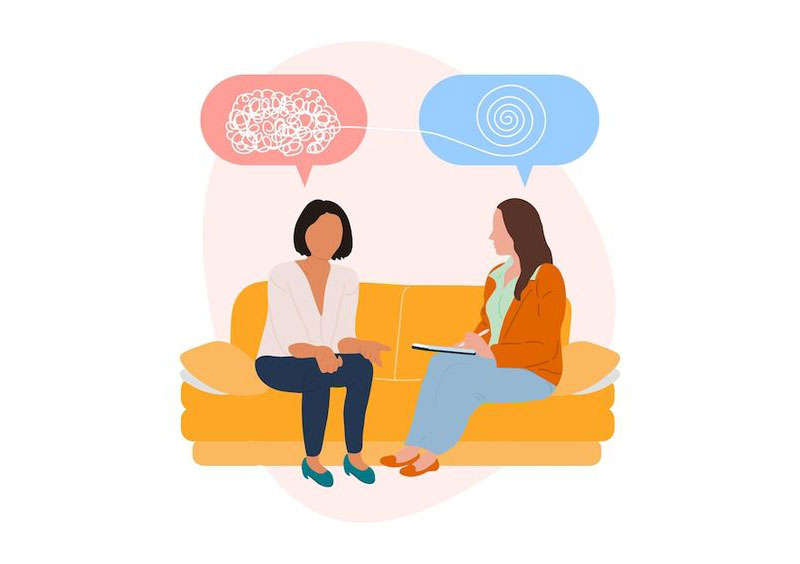
In today’s world, the pursuit of emotional well-being has become more accepted and valued than ever. However, despite the growing openness towards psychological therapy, numerous myths and prejudices surrounding the field of mental health persist. Although going to a psychologist is no longer as frowned upon as it was a few years ago, there are still many negative beliefs regarding the therapy process.
Despite countless benefits of going to therapy, these myths and prejudices rooted in society and fueled by misinformation can hinder access to necessary psychological care and perpetuate unfair stigmas around mental health.
In therapy, it is quite common to hear a patient comment on the first visit: “I should have come many years ago,” but they may admit that before daring to come for a consultation or discuss their problem and open up, they have preferred to try “everything.” before coming to therapy or “insistently solving it on your own” rather than asking for help.
In this blog today, we will review the most common myths, from the fact that seeking psychological help is a sign of weakness, to the myth that going to a psychologist is for people who are crazy and very sick in the head.
What are the myths about going to psychological therapy?
Myth 1: Only the “crazy” or weak go to therapy:
One of the most ingrained and damaging myths is that therapy is only for people with severe mental disorders. The reality is that anyone can benefit from therapy to address everyday problems, improve their emotional well-being, and reach their full potential. However, there is also a misconception that asking for psychological help is a sign of personal weakness or failure. This social stigma prevents many people from seeking the support they need. In fact, seeking therapy shows courage and emotional strength by acknowledging that we need help to improve our mental well-being. From my personal experience, this myth is more common among men because of gender norms that stigmatize emotional expression and seeking help.
Myth 2: Therapy is only for solving serious problems:
Many people believe that they should only seek therapy when they are on the verge of emotional collapse. However, therapy is also helpful for managing stress, improving relationships, developing coping skills, and promoting personal growth, among others.
Myth 3: Therapy is just about talking about your problems:
While communication is a fundamental part of therapy, modern therapeutic approaches go beyond just talking about problems. Therapists use a variety of techniques, such as cognitive-behavioral therapy and acceptance and engagement therapy, to help clients change unhealthy patterns of thinking and behavior.
Myth 4: Therapy is a long and expensive process:
While some forms of therapy may require a long-term commitment, there are many therapy options that are not relatively long and are goal-focused. In addition, many practices offer adjusted rate options and some health insurance covers therapy services.
From the methodology I work with, cognitive-behavioral therapy, the approach shows significant changes usually in a few sessions, although each case is different according to the chronicity, frequency and intensity of the problem as well as the motivation for change and active commitment of the patient.
Myth 5: If the psychologist has not experienced it, he will not be able to help me:
Just as a medical professional doesn’t need to have had cancer to understand and treat other people, so does psychology. Health psychologists study and are trained to understand the human mind and behavior in a profound way, in order to be able to offer useful tools and techniques to solve problems by empathizing with the patient and understanding the case and their needs.
Realities of the effect of therapy
1. Improving emotional well-being:
Psychological therapy can provide a safe space to explore difficult emotions, find healthy ways to deal with stress, and improve emotional resilience. It is a personal and private context in which we work according to the therapeutic goal of the patient, providing a bond of trust that is very important to be able to move forward in the therapy process.
2. Strengthening interpersonal relationships:
Through therapy, people can learn effective communication, empathy, and conflict resolution skills that can significantly improve their relationships with others. Also, in couples therapy, we work on areas such as emotional support, coexistence in couples, etc.
3. Development of coping skills:
Therapy provides practical tools and strategies for managing stress, anxiety, and other emotional challenges, allowing people to face life with greater confidence and balance.
4. Promotion of personal growth:
By exploring their thoughts, feelings, and behaviors, people can discover new perspectives, strengths, and inner resources that help them grow and evolve as individuals. In short, to know myself and recognize my emotions to understand and guide my life towards my life goals and values.
In short, it is important to challenge the false myths of psychology and recognize therapy as a valuable tool for promoting mental health and emotional well-being. By overcoming prejudices and seeking professional help when needed, we can open ourselves up to a journey of self-knowledge and personal growth. Don’t be afraid to take the first step towards a healthier and happier life!
Xavi Ponseti
Col. Nº B-03138








